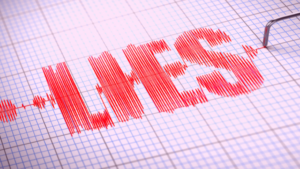Polygraphs (lie detector tests) have been around for decades. First invented in 1906 by a British cardiologist, they were utilized by law enforcement for interrogations by the 1920s. People are usually in two camps: (1) lie detectors are science, and they provide truthful results, or (2) lie detectors are pseudo-science fiction, and they can’t be trusted. Results of polygraphs have never been admissible in court as evidence, but they are useful tools used by law enforcement, legal counsel and treatment providers.
Should I take a lie detector if the cops ask?
I would never advise a client to take an impromptu polygraph test at the police station. If a cop asks you to take a test, you should politely decline and say you need to consult with an attorney first. Of course, you should already have an attorney present for any and all questioning by police! See my blog on best practices if you’ve been arrested or are being questioned in connection with a crime.
If a test was to be taken, it should be with a private examiner at a time and place of the examinee’s choosing. The advantages of a private examiner are many:
- The questions are known in advance. The examinee has a chance to properly prepare.
- The credentials of the examiner can be thoroughly reviewed. There is no fear that the examiner is “in the pocket” of the police.
- The results will remain confidential, unless the choice is made to share them.
There are many reputable private examiners with years of experience. You can rely on their expertise for a “fair” test. For my clients in King County, I usually recommend either Terry Ball or Norm Matzke. The cost of a private test varies, in the range of $300 – $550 per test. If the results are widely inconclusive, a second test may be necessary.
When is it a good idea to take a polygraph?
Taking a lie detector test isn’t always a bad idea. If taken with a reputable examiner under the direction of an attorney, the results can be valuable. They can be used to provide law enforcement with “proof of innocence”, to corroborate facts of the case and to eliminate a person as a suspect. Cops love test results! If you can show that “see, I’m telling the truth”, that can go a long way with clearing your name and possibly avoiding charges.
Of course, if the results are detrimental, then that information will be protected under attorney/client privilege if the test was conducted in private.
Can I “beat” the lie detector test?
test?
It is very foolish to try and beat the test. People have tried many methods – pain, drugs, deep breathing. These all usually fail miserably, and an experienced examiner will spot most cheaters. I always advise my client to be honest with your attorney and honest on the test. That is the best way to achieve readable results that may have value.
How else are tests used?
Polygraph test are often used in Sex Offender Treatment as an accountability tool. Treatment providers will use the tests to monitor offenders – asking not only whether they are on track with treatment, but if they are avoiding certain triggers. For example, they can learn whether they are viewing pornography or interacting with minors. This helps the provider know whether the person is following court-ordered guidelines. Failing the test can lead to the person being in trouble with their probation officer, and could be one of the reasons that a return to jail is recommended.
Have further questions?
If you have a criminal matter and would like to consult with a lawyer who will begin working on your case right away, contact Jan Olson at Ellis, Li & McKinstry, PLLC. You can reach Jan by calling (206) 682-0565 or by e-mail at [email protected].

